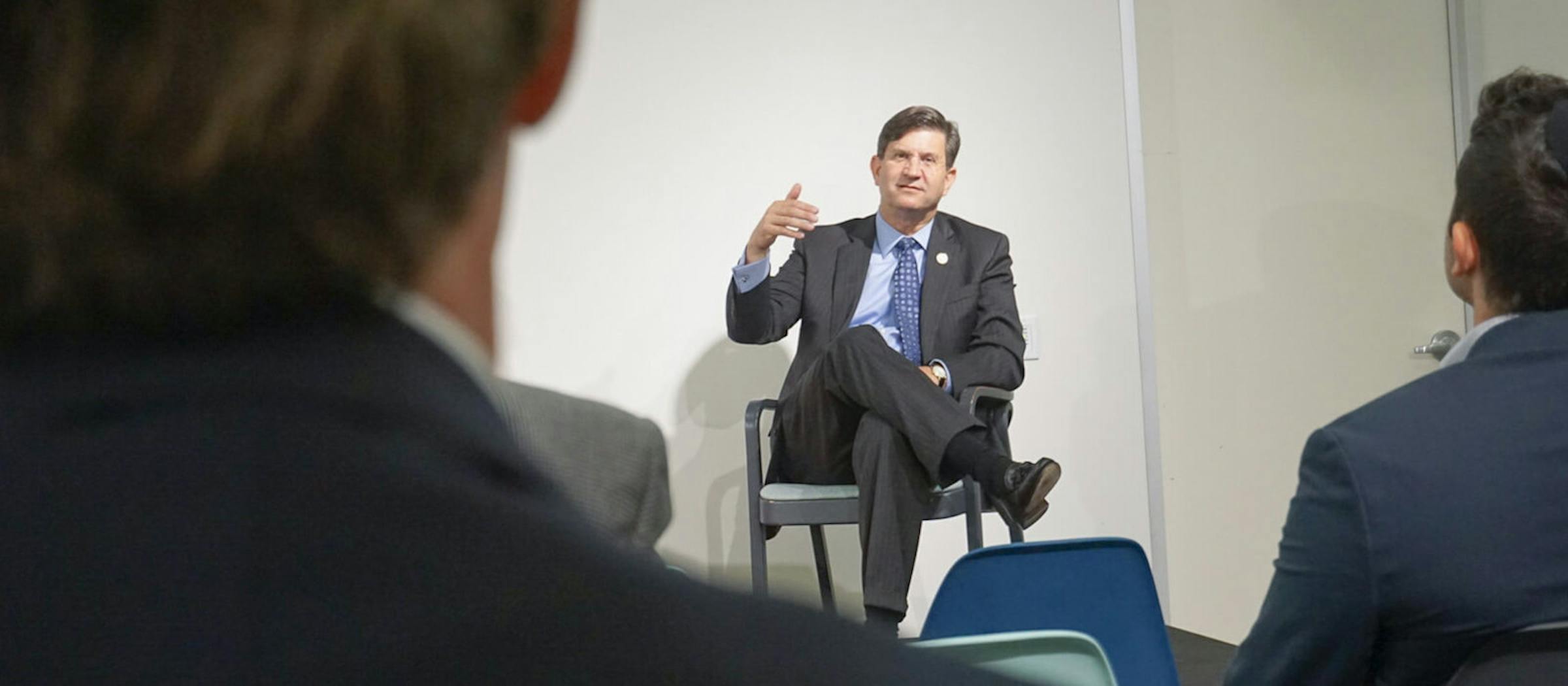A conversation with U.S. Representative Brad Schneider
Decisions made in Washington can have profound effects on our healthcare system — everything from biomedical research, to insurance and the delivery of care, to the factors that help shape overall health and wellbeing.
In advance of the 2018 midterm elections, MATTER, the Health Care Council of Chicago (HC3) and the Illinois Biotechnology Innovation Organization (iBIO) extended invitations to congressional representatives and major-party candidates from Chicago-area congressional districts to discuss their positions on healthcare with our communities.
U.S. Representative Brad Schneider (D-IL, 10th District) joined us at MATTER on August 29 for a conversation with members of the MATTER, HC3 and iBIO communities. He shared his views and positions on healthcare policy and responded to questions from the audience. Below are a few highlights from the conversation.
Healthcare policy should be an iterative process.
“If I came up with a perfect solution today, a year from now it would be obsolete and we would need to refine it. Not just in my political career but in all our lifetimes, we’re never going to be done with figuring out how to deliver healthcare in this country.
“My hope is that as we can reform the process to get to ‘regular order,’ we can have the discussion: ‘That didn’t work the way we intended — let’s change it.’ But in politics [today], we don’t allow for trial and error.”
The questions we ought to be asking.
“Where are we going and how are we going to get there? Then once we pass a policy: What’s working and how do we build on that? What’s not working the way we intended and how do we fix that? What can’t be fixed and how do we try something new? We’ll never get ahead of medical technology or medical practice — and that’s not our role. We’ve got work to make sure the policy keeps up, [but] we’ve been stuck for a decade.”
Technology’s role in the physician-patient relationship.
“I talk to doctors who are spending less than five minutes with their patients. They have so big a backlog that at the end of the day, after seeing a bevy of patients and trying to keep it all straight, they are doing paperwork. How can we get back to a place where medical professionals can spend the time they need to with patients? Technology is a piece of that. But we have to make sure that those efforts to invest in technology are moving us forward.”
The right direction: value-based care.
“Both sides are talking about how to get away from the fee-for-service model — creating more opportunities for value- and outcomes-based [care] and about what moves us in a different direction. If we could save a portion [of national spending on healthcare] and get more into direct outcomes and healthier patients — leading the world on where we need to be — I think that’s the right direction.”
Read the recaps from previous conversations in this series: Congressman Mike Quigley (D-IL, 5th District), Congressman Peter Roskam (R-IL, 6th District) and Congressman Raja Krishnamoorthi (D-IL, 8th District).



